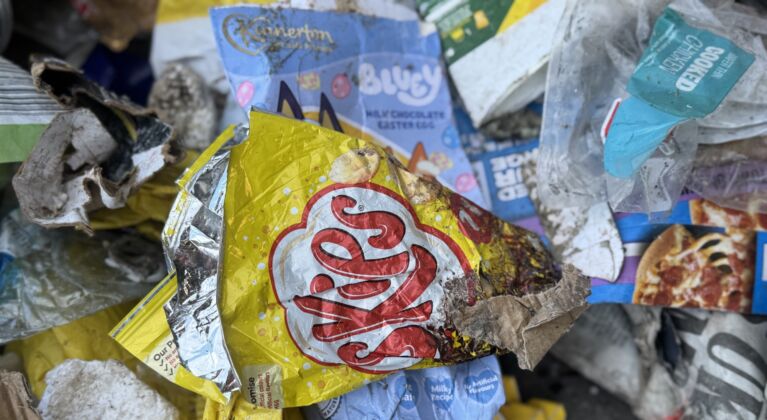

J&B Recycling Knowledge

Why Crisp Packets Can't Be Recycled at Home – and What You Can Do Instead
Crisp packets are made from multiple layers of different materials, typically a mix of aluminium and plastic. This layered structure helps keep your crisps fresh and crunchy, but it also makes the packets very difficult to recycle through your normal household bin.
At our Materials Recovery Facility (MRF), like most others across the UK, we’re equipped to sort single materials such as cardboard, paper, plastics, and metals. When mixed-material items like crisp packets enter the system, our machines can’t detect or separate the individual layers. This leads to contamination of other recyclable materials and can even result in whole loads being sent to landfill.
The Industry
The UK is obsessed with crisps. The market is currently valued at a staggering £3.2 billion, with a growth rate of 5.7% in 2023 alone. But what happens to all that packaging?
Unfortunately, many empty crisp packets end up in household recycling bins, where they don’t belong. At our MRF, we see them regularly, and they cause real headaches as they pass through our process.
What Happens If You Recycle Them Incorrectly?
- They often clog machinery, causing breakdowns and delays.
- They slip through detection systems, ending up in bales of recyclables, which can lower the quality of the materials.
And if they aren’t caught? They become lightweight litter, easily blown from bins into streets, parks, rivers and eventually, oceans. Over time, crisp packets break down into microplastics, which are hazardous to wildlife and make their way into our food chain. This is an extremely damaging effect which humans are battling to combat all over the world.
In fact, think about the makeup of a crisp packet, strong, durable and waterproof - which makes them perfect for food. But of course, terrible for getting into our environment. They can take years to break down, as they are not biodegradable, meaning they do not decompose or rot away.
So What Can You Do With Them?
Although you can't recycle them in kerbside, there are other options, like saving them and using your local supermarket soft plastics bins, which can accept materials like sweet wrappers, crisp packets and plastic bags. These are then recycled properly and diverts waste from landfill. Brands like Walkers have teamed up with TerraCycle to offer over 3,500 drop-off points across the UK. Just save your empty packets and take them with you on your weekly shop.
Here at J&B Recycling, we urge more retailers and supermarkets to raise awareness about the correct disposal of crisp packets - and we fully support any initiatives that make this easier for the public.
The environmental impact of wrongly disposed crisp packets may seem small, but collectively, it can have serious consequences. These lightweight plastics often end up as litter, pollute waterways, and contribute to the growing problem of microplastic pollution. Every packet counts - and better awareness can help reduce the damage. If you would like to see the full J&B Recycling process click - What happens to your kerbside recycling? I J&B Recycling's Sorting Processes

Delivery & collection
services covering
the UK
Where we operate
Request a quote
For an instant quote, call our team on
01429 272810- 1. Waste type
- 2. Company Details
- 3. Enquiry Details
- 4. Thank you